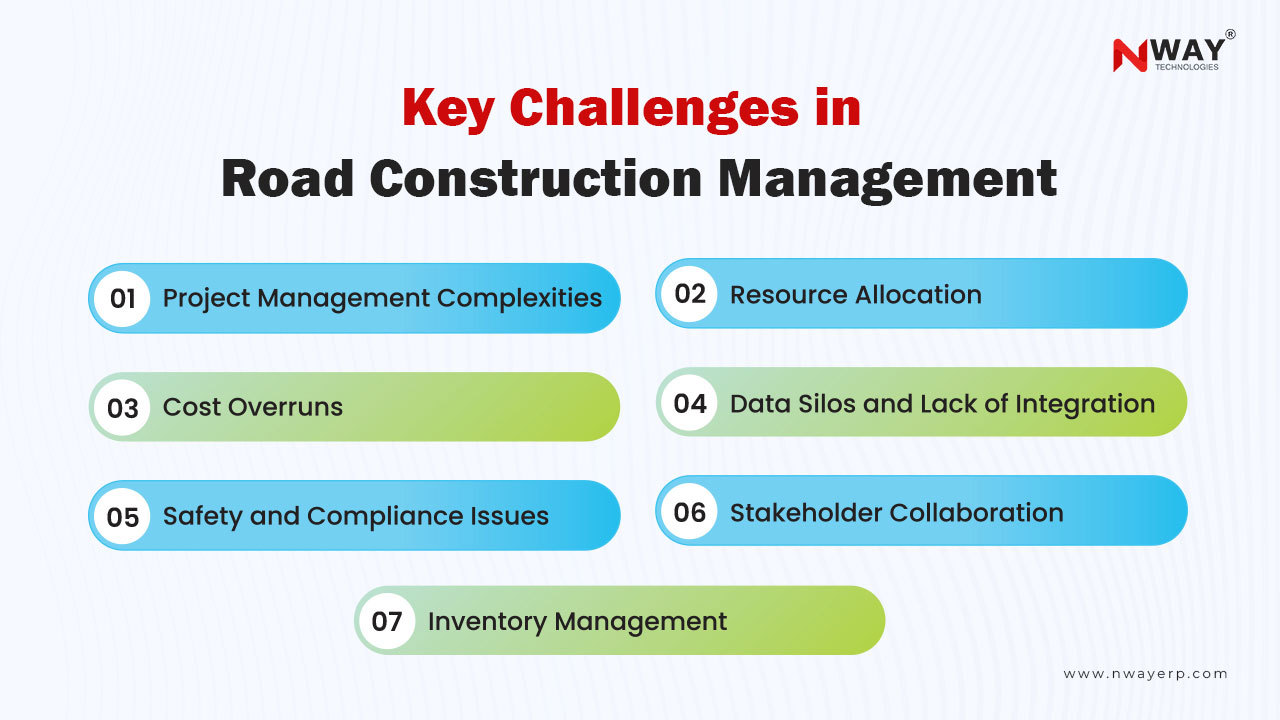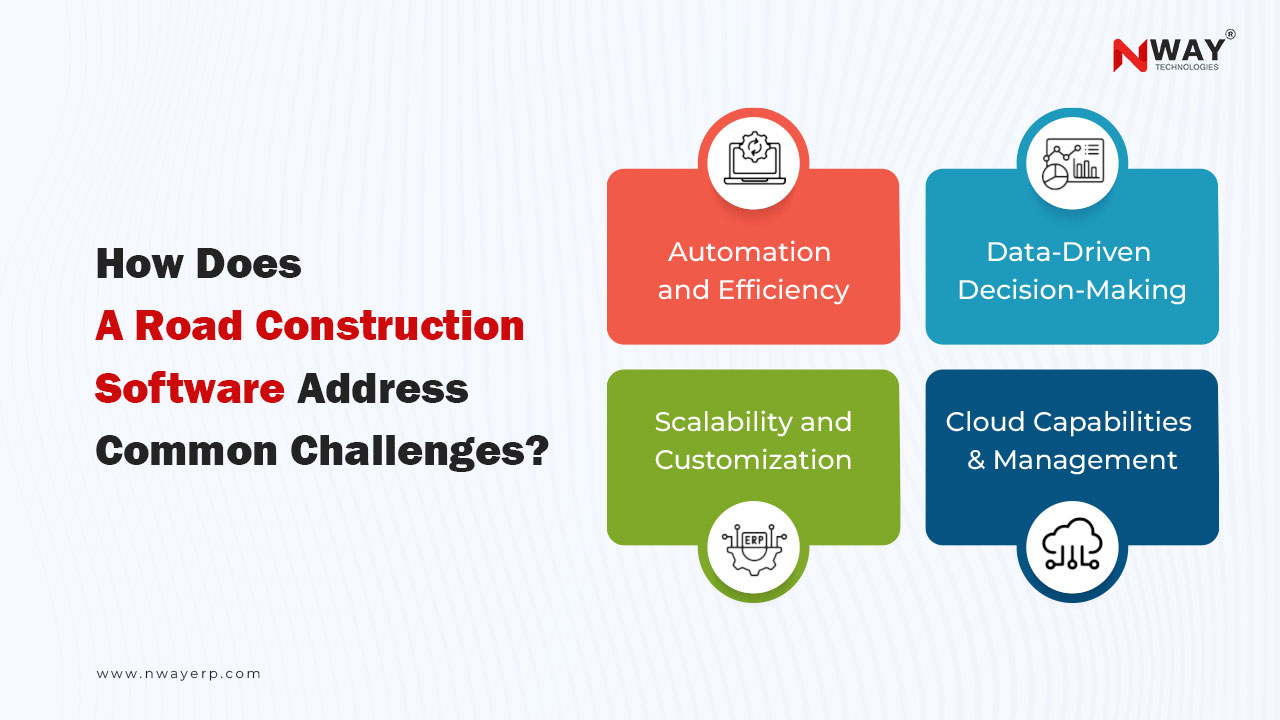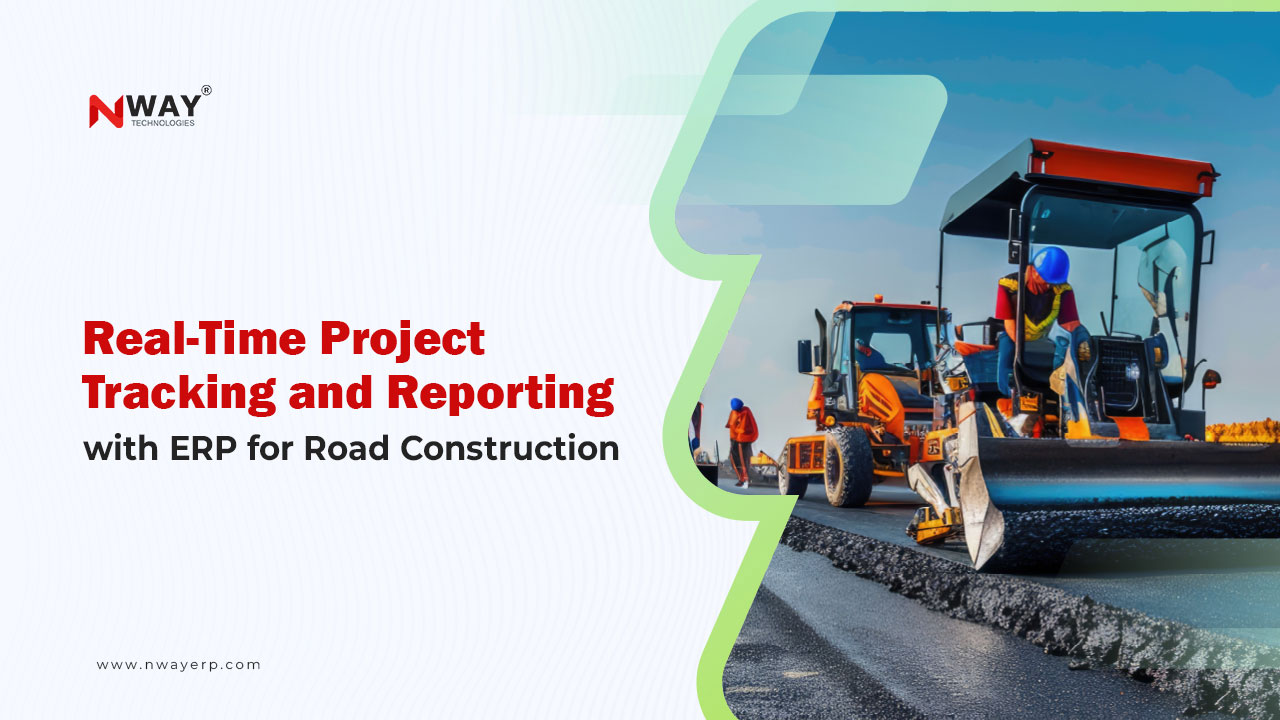The road construction industry is shaping the nation’s infrastructure, fueling economic growth and ensuring safe, efficient transportation. Yet, companies face various challenges in managing road construction processes like cost management, with compliance and safety regulations.
Road construction is an inherently complex process with numerous challenges, from cost management to logistics and compliance with safety regulations. To overcome these challenges, companies must opt for road construction management software. It can streamline
operations, reduce inefficiencies, and drive sustainable success. Read this blog to delve into the primary challenges faced by road construction companies and how road construction management software can provide effective solutions.
Key Takeaways
- Introduction
- Key Challenges in Road Construction
- How Does Road Construction Software Address These Challenges?
- Challenges in Selecting a Road Construction Software
- Conclusion
Key Challenges in Road Construction Management Road construction companies frequently encounter challenges that can affect the timeline, budget, and overall success of projects. Here are the most difficulties they face:

Project Management Complexities
Managing a road construction project requires precise planning and coordination of various components, including time, materials, labor, and machinery. Miscommunication, delayed approvals, and poor scheduling can lead to costly overruns and delayed project completion.
Cost Overruns
Cost overruns are a persistent challenge in road construction, often arising from fluctuating material prices, labor costs, or unforeseen delays. Managing costs without a streamlined system can lead to delays and budget excesses.
Safety and Compliance Issues
Construction sites, especially road construction zones, are susceptible to accidents and require strict adherence to safety standards. Maintaining compliance with environmental, labor, and safety regulations can also be demanding and time-consuming.
Inventory Management
Efficiency inventory management is essential in road construction, where materials and equipment are often required on short notice. Inventory management, including overstocking of materials shortages, can delay projects and increase costs.
Resource Allocation and Workforce Management
Allocating resources and managing workforce schedules is crucial in road construction, where delays or inefficiencies in deployment can significantly impact productivity and deadlines.
Data Silos and Lack of Integration
In many construction projects, data is often scattered across multiple platforms, various data sources make it difficult for teams to access any information they need. The fragmented data for different leads to inefficiencies and prevents proper
decision-making.
Stakeholder Collaboration
Successful road construction projects require collaboration between various stakeholders including contractors, subcontractors, suppliers, and government agencies. Communication gaps can lead to misalignment and project delays.
How Does Road Construction Software Address These Challenges?
The best ERP software for construction helps in addressing these challenges in road

Automation and Efficiency
Road construction software automates many manual processes, reducing the likelihood of human error and allowing employees to focus on more straightforward tasks. For example, automated invoicing, payroll management, and material requisitions streamline administrative workflows and reduce costs.
Data-Driven Decision-Making
Construction management ERP software, which enables project managers to make quick informed decisions. With the help of dashboards and custom reports, managers can monitor key performance indicators (KPIs) and assess project performance.
Scalability and Customization
It is scalable and can be tailored to the specific needs of road construction projects. As project demands fluctuate Construction project management software can adapt, providing companies with the flexibility needed to handle diverse project requirements without incurring excessive costs.
Cloud Capabilities & Management
A good construction management software allows remote access and allows companies to track, analyze, and collaborate for multiple projects. It also ensures that required teams can access the data and communicate effectively with the upper management, enhancing efficiency and decision-making.
Challenges in Selecting a Road Construction Software
ERP software can be an effective tool for construction companies, but companies must keep various things in mind when selecting good construction software for road projects. Here are some of the common ERP implementation challenges to understand while selecting the right road construction software.
Cost of Implementation
Various construction ERP software companies provide significant upfront investment that causes problems to many construction companies.
What to Consider: It is necessary that the road construction ERP software you choose must provide you the long-term financial benefits along with implementation costs covered.
Change Management
Transitioning to road construction management software can be challenging for employees who were prior using traditional methods.
What to Consider: It is necessary that companies should choose easy-to-understand, implement, and user-friendly software for all employees. It should offer comprehensive training sessions to promote its best practices. It can help the company adopt a new system more effectively and positively.
System Integration
Various ERP systems do not provide effective integrations with existing software, particularly companies using legacy systems like Tally, excel sheets, and more.
What to Consider: Choose a road construction ERP software that offers robust integration capabilities and ensures smooth integration. Good ERP providers offer integrations with all the major systems like Tally, excel sheets, boom barriers, biometric integration, weighbridge Integration with Camera, and all other integrations.
Training and User Adoption
Road construction ERP software can be complex and proper usage requires extensive training. Without adequate user adoption, companies may fail to realize the full potential of their achievement.
What to Consider: Choose construction software for road projects that can offer training and programs and provide ongoing support for employees. Additionally, selecting a construction ERP software with an intuitive interface can simplify the learning process.
Conclusion
The construction industry faces various challenges that can impact productivity due to disruption in projects, delays in timelines, and increased costs. Companies must adopt the Best ERP software for construction, it can help in addressing the challenges, streamline operations, and enhance project outcomes.
Road Construction Software manages project timelines, tracks budgets, ensures regulatory compliance, and improves communication, all of which are critical for successful road construction projects. It also offers competitive advantages like delivering projects on time and within budget and maintaining a high level of quality and safety. In the dynamic world of road construction, companies can enable companies to build a better future using this efficient technology.












